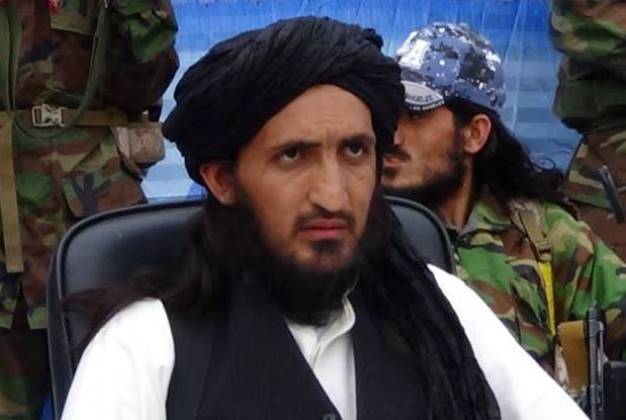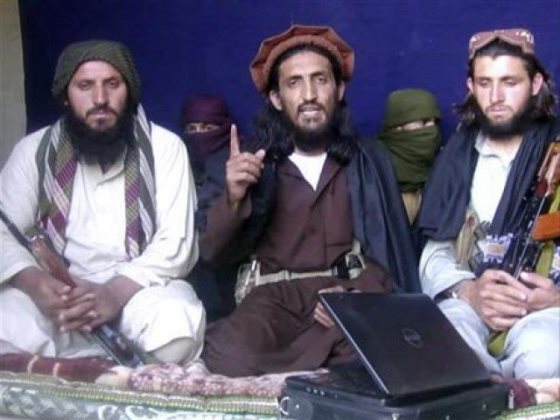
 “Jamaat-ul-Ahrar is striving for global jihad,” the splinter group of the Tehreek-e-Taliban Pakistan proclaimed in 2014. Two years later, by 2016, however, its ambition had shrunk, as made apparent by this new statement: “It is our well-defined policy to fight inside Pakistan.” It says it hasn’t attacked any other country and didn’t intend to in the future. The global aspirations seem to have been reduced to local concerns.
“Jamaat-ul-Ahrar is striving for global jihad,” the splinter group of the Tehreek-e-Taliban Pakistan proclaimed in 2014. Two years later, by 2016, however, its ambition had shrunk, as made apparent by this new statement: “It is our well-defined policy to fight inside Pakistan.” It says it hasn’t attacked any other country and didn’t intend to in the future. The global aspirations seem to have been reduced to local concerns.JuA head Omar Khalid Khorasani can perhaps be forgiven for readjusting his group’s outlook. The US State Deparment recently decided to designate JuA as Specially Designated Global Terrorists (SDGTs). And so the JuA, which had once offered its services to Al-Qaeda is now denying having relations with the international terror outfit.
Islamabad has welcomed the decision. “Pakistan has for long pleaded [with the US] to take concrete action against TTP and the likes, who are hiding in Afghanistan,” said a Pakistan Foreign Ministry spokesperson.
JuA spokesperson Ihsanullah Ihsan did not respond to this requests for comment on the recent policy shift.
The JuA took shape in August 2014 and went on to stage a number attacks in Pakistan against military personnel, law-enforcement agencies, government buildings, politicians, religious minorities, lawyers and other government officials. Presently, the group is led by Khorasani who before joining the JuA worked as the head of the TTP’s Mohmand Agency chapter.
If you are marked an SDGT, it means that the US believes you have committed, or pose a risk of committing, acts of terrorism that threaten the security of US nationals or its national security, foreign policy, or economy. Such a title used to be a feather in a terrorist’s cap once upon a time. Whenever militant outfits or Taliban leaders were designated global terrorists, they felt rather chuffed to be called the most dangerous person in the eyes of their enemy. It was the ultimate validation.
This does not appear to be the case with Khorasani, who, far from jumping to publicise this ‘achievement’ took almost two weeks to respond to the announcement. And when he did speak, via an audio message through JuA’s propagana wing Ihyae Khilafat, he had this to say: “The decision is unjust [and] is based on wrong information provided by Pakistani intelligence to the US.” It is almost as if the statement carries a plea to review the decision.
An insider claimed that Khorasani called a shura or council meeting after the State Department’s announcement and decided to downsize the group’s policy from global jihad to avoid the wrath of US and European countries. In a sense, Khorasani was just going by historical precdent. Khalifa Omar Mansoor of the TTP’s Tariq Gidar group was killed in a drone strike in Afghanistan in July 2016 just a month after the US State Department had declared his group an SDGT in May. The Dara Adam Khel-based group had carried out many attacks in Pakistan, including the one on Army Public School Peshawar.
But it is deniable that Khorasani has deviated from the JuA manifesto defined at the time of its inception. Ihyae Khilafat magazine has carried a number of articles written by leading commanders on the topic of “global jihad”. In 2014 a special English-language edition editorial stated that they were aiming for Shariah and establishment of Khilafah at the global level. Khorasani has pleaded with the world community to support it in its fight against the Government of Pakistan, which he says is not allowing Islamic Shariah.
According to Khorasani the JuA never swore allegiance to the Islamic State or was affiliated with Al-Qaeda. “Such reports are nothing but packs of lies. We want to make it clear that we have no organizational relations with IS or Al-Qaida.” However, on the 13th anniversary of the 9/11 attacks, the JuA issued a policy statement vowing to continue the mission of Al-Qaeda chief Osama bin Laden.
Well-placed sources in Taliban say, however, that JuA and Al-Qaeda fighters have remained side-by-side in the Af-Pak region and still enjoy good relations. “We have people from all over the world, including Arabs and Western world for this mission,” Reuters quoted JuA spokesperson as saying in November 2014.
What is the JuA
In July 2014, a group of senior Taliban leaders quit the Maulana Fazlullah-led TTP on differences over administrative issues. The formation of JuA was announced next month in August. Initially Maulana Qasim Khorasani was made head of the outfit but the real power rested with Omar Khalid Khorasani. Ihsanullah Ihsan, who once headed the media wing of the TTP, became JuA’s official spokesperson. Amongst the other leading commanders were Qari Ismail from Khyber Agency, Mullah Yaseen from Swat, Maulana Abdullah from Bajaur, Mufti Misbah from Peshawar, Maulana Haider Mansoor from Orakzai Agency and Maulana Shakeel Ahmad Haqqani from Charsadda who was later killed in airstrikes in Afghanistan. In March 2015, Khorasani replaced Qasim.
Initially the group was strong with a large number of fighters from different parts of the country. But many quit for other organizations. At the moment the majority of JuA is based in border areas between Pakistan and Afghanistan with some sleeper cells in urban areas. “Around 40 people from JuA have joined IS, including one of its operational commanders Umar Khitab,” claimed one source. Journalist Rahimullah Yousafzai puts its current numbers in the low hundreds (like around 300). “JuA’s central leadership is based in Afghanistan but the group does not control villages or hamlets; its members can easily cross the border to communicate with their comrades in Pakistan,” he told TFT.
Tahir Ali is based in Islamabad and he tweets at @tahirafghan

